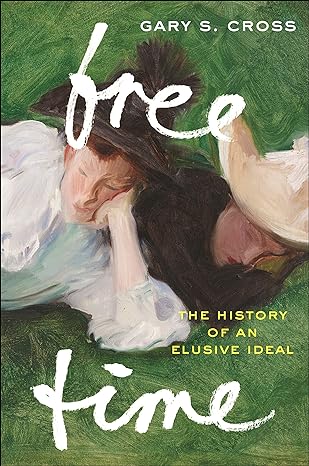Intriguing History Of The Concept. Straight up, this is an academic writing this book... and the typical academic leftist anti-capitalist themes are quite prominent throughout the text. So rather than defenestrate the book (as some will very much want to do) and to save the author some 1* reviews that are nothing more than "this was just anti-capitalist trash!!!!!"... if you can't at least accept that this is the position the author comes from... this may not be the best book for you.
As far as the overall history and presentation goes, it is actually rather intriguing. Cross's examinations of "high culture" and "genteel" Victorian leisure ideals vs "low culture" entertainment of the masses is quite extraordinary in just how detailed he gets in showing the stark differences here. When Cross begins to get more into the 20th century and showing the mass increases in productivity and the intricate tradeoffs of using the surplus productivity for more income (what American society ultimately came to) vs for more leisure time (what other societies came to), it really is truly intriguing. As someone with an interest and at least a modicum of training in both history and economics myself, it is rather interesting to consider the ramifications if other choices had been made through these struggles and decisions as Cross lays them out here.
As with most any book of its kind, once Cross ends the historical illumination and switches over into more proscriptive social commentary on where believes society should go from our present position... meh, this is the typical section of "Your Mileage May Vary", and that is certainly the case here.
Still, with a bibliography hitting the 20% mark, this is a reasonably well documented examination of the topic, and the way Cross presents it really is stimulating. Very much recommended.
